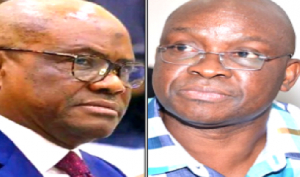The Federal Government is planning urgent action to fix problems with electricity tariffs that are disrupting gas supply and payments at major power plants run by the Nigerian National Petroleum Company Limited (NNPC).
This was discussed during a meeting in Abuja at the NNPC Towers, involving the Minister of State for Petroleum Resources (Gas), Ekperikpe Ekpo; the Minister of Finance, Wale Edun; and top officials of NNPC, including Dr. Salihu Jamari, who stood in for the Executive Vice President of Gas, Power, and New Energy.
FG steps in over unpaid debts
A statement from Ekpo’s media aide, Louis Ibah, stated that the talks focused on resolving financial and policy issues affecting power stations in Maiduguri, Okpai (Phase 2), and Kano (Phase 1).
NNPC officials raised concerns about delayed payments and pricing gaps in the electricity market that threaten the survival of these gas-powered plants.
They warned that without quick action, the power supply in critical areas could be at risk, which would negatively affect the economy and daily life.
The statement read:
“NNPC Ltd warned that without timely intervention, power supply to key regions may be jeopardised, with potential economic and social impacts.”
Ekpo emphasised that resolving these issues is crucial for maximising the potential of Nigeria’s gas-to-power systems, particularly in regions such as Maiduguri and Kano, and for enhancing supply to the national grid.
FG appeals to key oil sector players
Finance Minister Edun agreed, saying all key players must work together to create a solid financial plan that will keep these power stations running and support national development.
The meeting ended with a plan to involve the Minister of Power in a follow-up meeting to find workable solutions as soon as possible.
Nigeria’s power sector is struggling with financial challenges, made worse by subsidies and low metering coverage.
Although the government pledged to subsidise electricity for most consumers, it says it can no longer afford the N200 billion monthly cost.
This has left electricity distribution companies unable to collect enough revenue, leading to large debts owed to power generators and gas suppliers.
Business News of Thursday, 26 June 2025
Source: www.legit.ng













